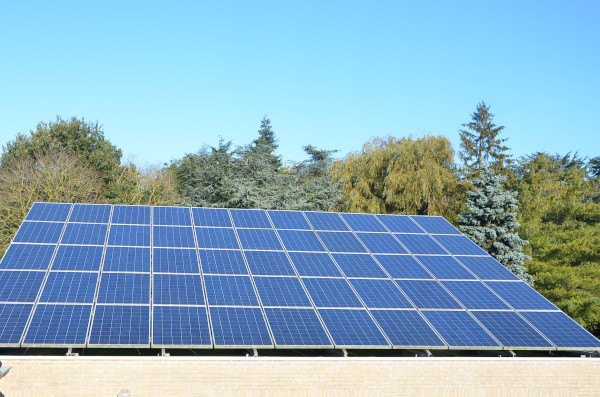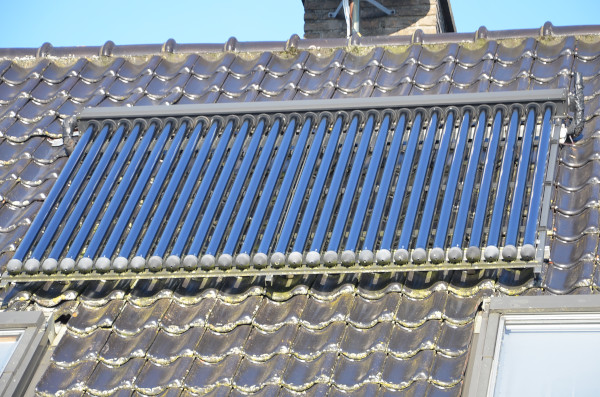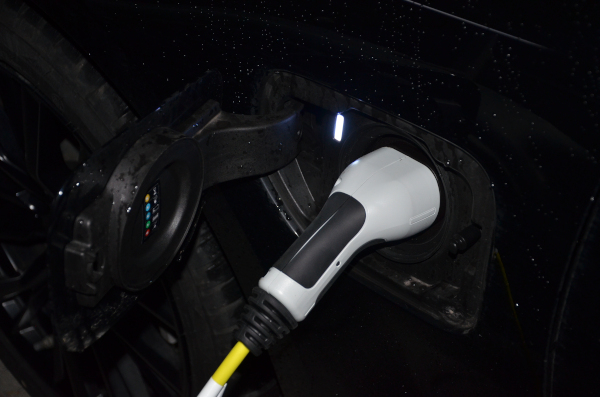

The campaign started by Greta Thunberg; a name that does not need introduction anymore, heavily impacted the awareness about the changing climate because of the pollution by the continuing emission of various greenhouse gasses has seriously increased globally. Although the climate has been changing throughout the history of our beloved planet, it has become clear in recent years that mankind indeed has an important effect on the current changes in the climate, to the extent that life as we know it, including its broad variety of species, will be impacted. Devastating effects, such as the extinction of numerous species, have been predicted by numerous specialists and scientists.
These are not the hollow words of some individuals. There are a lot of studies, by renowned specialists, all coming to the same conclusion: Mankind is gravely accelerating the global warming through the emission of carbon dioxide and other greenhouse gasses. The effects are becoming visible (and may already be partly irreversible). There are more heavy storms, there are longer periods of drought. Species (including fish in the sea) are migrating to other locations. There is a decrease of oxygen in the sea impacting all the forms of life therein.
Of course, there are still people denying that the climate change is (at least partly) caused by human activity, but then again, there are also people stating that smoking does not have a negative impact on one's health…
The documentary "An inconvenient truth" by Al Gore in 2006, and some warnings given by Jacques Cousteau in his documentaries brought my attention to climate change. As discussed in the story about the cover picture of my blogsite, I've also seen the effects of climate change on the Morteratsch glacier in Pontresina, Switzerland.
The recent manifestations of the "climate youth" on Fridays brought the issue on the political agenda. Politicians have been using the issue for their own political gain, rather than working towards structural solutions. In Belgian and in Flanders, the region where I live, we mainly hear hollow slogans rather than structural solutions…




Although I don't share all of the points of view of the green party in Belgium, I believe that every individual has the duty to care for, and look after the environment, and to limit one's footprint with regards to carbon dioxide emissions.
Our environment, nature, is definitely worth caring for. We live off the numerous provisions of nature, and still, quite often (too often) I see people dropping litter here, there and everywhere. This not only distorts the view; it also creates problems for cattle. Cows are dying because of eating shredded pieces of metal, coming from the empty cans dropped in the grass and shredded by the mowers.
Most of the plastic eventually arrives at sea causing big patches of pollution. To be honest, I don't find it normal that initiatives such as "the ocean cleanup" of Boyan Slat are required to be able to clean up places like the Great Pacific Garbage Patch.
Climate is the long-term average of weather, typically averaged over a period of 30 years according to Wikipedia. Some of the meteorological variables that are commonly measured are temperature, humidity, atmospheric pressure, wind, and precipitation. In a broader sense, climate is the state of the components of the climate system, which includes the ocean and ice on Earth. The climate of a location is affected by its latitude, terrain, and altitude, as well as nearby water bodies and their currents.
I do agree that most of the pollution and the emission of greenhouse gasses are caused by large industries. I also agree that developing countries do not have the correct focus on controlling pollution and emissions. I’m convinced however that personal initiatives, such as picking up an empty can on the street and putting it in the recycle bin at home are more than just a drop in the ocean. It is obvious that our environment would be cleaner and healthier if everyone was doing this.
Similarly, reducing one's footprint of greenhouse gasses on an individual bases will have an impact when the critical mass is reached and sufficient people start to take action. There are a lot of things that can be done by individuals, although some of these initiatives might cost a bit of money. Solar panels and electrical cars are still quite costly, and don't necessary fulfil all the needs.
Over the last decade or so, I've already done quite some initiatives myself with regards to climate and environmental control.
Reducing, sorting and recycling waste is easy and cheap. To be concrete, my family is making compost of organic waste for quite some years now, reducing the amount of waste that is collected (and burnt) by the commune. Plastics, metal, polystyrene and wood are sorted and brought to the scrap yard, where they are collected by recycling companies in turn. One or two times in a year, my family and I are cleaning the surroundings of where we live.
Instead of showering every day, which I did until a few years ago, I discovered that showering every other day, and washing myself at the sink on the non-showering days reduced the water usage (and water pollution) of our family by almost 30%. This is a collective effort of our whole family off course.
The house we are living in was built back in 1994, meaning that our house is over 25 years old now. Although it was already a common practice to use insulation, the quality of the insulation was not that high at the time. Over the years we’ve improved the insulation of walls, windows and the roof, which resulted in a decrease of 10% of our energy bills. The various projects improving the insulation were quite costly, but we will get the money back over a period of ten years, thanks to some subsidies by the government.
About two years ago we gradually started replacing all the lighting in our house with LED lighting. In addition, we switch off appliances that not need to be powered on at night time. this was again quite an investment, but immediately resulted in a decrease of about 10 percent of our energy bills. Payback period will be about 5-7 years.
About 10 years ago we invested in a large solar panel installation with a maximum production of 10kVA. This installation produces about 13MW per year covering a large part of our energy usage. The investment was high, but thanks to the government subsidies in combination with the reduced electricity bill the payback period was a little over 7 years.


About five years ago, we invested in a solar powered water-heating system. It works with vacuum solar tubes heating up liquids up to 200 degrees, that warm up the water. This system was expensive, but again there was a government initiative with subsidies partly covering the bill. The payback period is estimated to be about 10 years.
At about the same time of the installation of the solar-powered water-heater, we replaced the boiler of our central heating system by a condensing boiler. Again, this was a quite expensive investment. There was however also a campaign with subsidies from the government partly covering the cost of the investment. The combination of the condensing boiler and the solar-powered water-heating resulted in a reduction of over 30% of our energy bill! The payback period of the condensing boiler is estimated to be about 10 years also.
Whenever possible and convenient, we use public transport (mainly trains) for work related trips. This is not only convenient, because it is possible for us to work on the train. It is also a lot cheaper than travelling by car. In most cases, the price of the train ticket is about the price of the parking ticket… A lot cheaper than travelling by car. Unfortunately, there are quite some locations that we cannot reach easily by public transport and have to travel to by car.
Because of the nature of our work, we do need cars with an autonomy of more than 600 kilometres. For this reason, it is currently not possible to use electric cars, because their autonomy is in most cases limited to about 300 kilometres. We had to delay our decision for quite some time because of technology (and fiscal) restrictions, but this year we could go ahead and invest in “true” hybrid cars running on electricity and petrol. The investment of such cars is high, and the operational cost of the cars is high too. We’re sure that we will lose money with this investment, but the emission of carbon dioxides of traditional cars with combustion is simply too high. Therefore, we decided to go ahead with these investments anyway and indeed invest in the reduction of the climate change directly. Although we need to travel long distances some of the time, the autonomy of the cars on battery only is sufficient for more than half of the days we need to travel. We have no view of the impact on the energy bill of this investment yet, we assume it will be significant however (expecting more than 20% increase of the bill).


It is possible to contribute to a healthy environment and the decrease of the speed of the climate change. Personal initiatives will definitely not be sufficient, but these initiatives do have an added value. These initiatives also contribute to the awareness of the society.
There is indeed a substantial cost to the initiatives, but it is our experience that all these initiatives are paid back in a period of less than 10 years, and probably faster due to improving technology.
That's it! I hope you enjoyed reading this blogpost. Feel free to contact me in the case of comments and/or questions.
January 8th, 2020 by Tom Snauwaert.
We had to look up some information about the climate for this blogpost. We've found the information on:
The pictures (except the ones that were taken from the websites mentioned above) were taken with a Nikon D7000 camera.